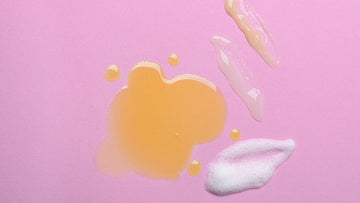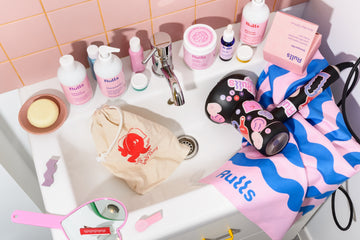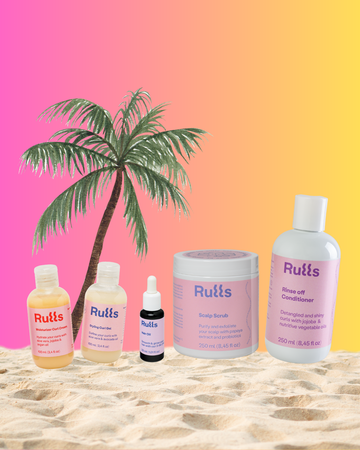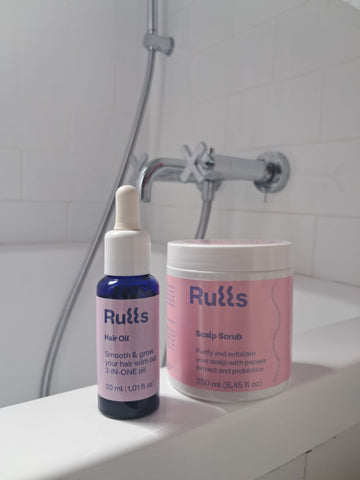
Take a look at the products you have in the bathroom. Read the ingredient list and try to decipher it. Don't worry, you're not alone, friend. If you've read them and are still confused, that's normal.
Lists of complex and convoluted names that we can't distinguish. In short, what do we have in the bathroom? Let's answer part of this great mystery.
Next, we explain which are the most harmful ingredients you can find in hair cosmetics.
First of all, we will tell you that all Rulls products are natural and vegan cosmetics, free from sulfates, silicones, drying alcohols, and any other harmful ingredients for your hair. Curls love us. That said, let's continue.

Silicones, often used in shampoos and conditioners, are synthetic ingredients that have two main functions. On one hand, they help the product glide better through the hair, making application easier, and on the other, they provide shine and smoothness. So, if there are only advantages, where are the downsides? Here they are:
Shampoos with silicones adhere to the hair fiber, giving that shiny and smooth appearance.
But it's just an optical effect, as they are actually blocking the hair strands, and in the medium to long term, this harms your hair, weakening it and making it more brittle.
And to avoid being misled (ha!), you can know if a product contains silicones in its formulation if among its ingredients you find any of these: dimethicone, cyclopentasiloxane, dimethiconol, phenyl trimethicone, amodimethicone, cyclomethicone, or any other that ends with the suffix -cone, -conol, -silane, or -siloxane.

Another great enemy of your hair is sulfates. These are very common ingredients in hair products. Their function is to clean the hair and they are responsible for the foaming of products we use, such as shampoo or conditioner. The problem is that they perform too well in their function.
Sulfates strip the natural proteins from the hair, as well as other oils that are naturally present in it.
As a result, the hair weakens, loses body, and becomes dull, lacking shine (but well, to disguise that, there are silicones). Sulfates also cause dryness, itching, and sometimes dandruff when the scalp is more sensitive.
The most commonly used sulfate is Sodium Laureth Sulfate and it is much more common than we think. Some similar products that we should also avoid in our routines are Sodium Lauryl Sulfate, Laureth Sulfate Sodium, Lauryl Sulfoacetate Sodium, Lauroyl Isethionate, and Sodium Lauroyl Taurate.

As you can see, a hair cleansing routine free of silicones and sulfates is extremely beneficial for any hair type. It is the best way to ensure the long-term health of your hair and the best way to condition your curls and waves without relying on chemicals.
Have you thought about switching to natural cosmetics? First of all, welcome!
And secondly, this is what you need to know: The silicone-sulfate combo excessively removes oil, and the scalp produces more to compensate for that aggression. Therefore, depending on the type of hair and scalp, it may take several weeks to regulate.

A tip: To give a boost to the transition process, you can use a natural oil in the pre-wash, as most silicones are not soluble in water, but they are in oil!
And this is where the dreaded transition begins, but that's something we'll tell you about in another blog post ;)
Take care!





